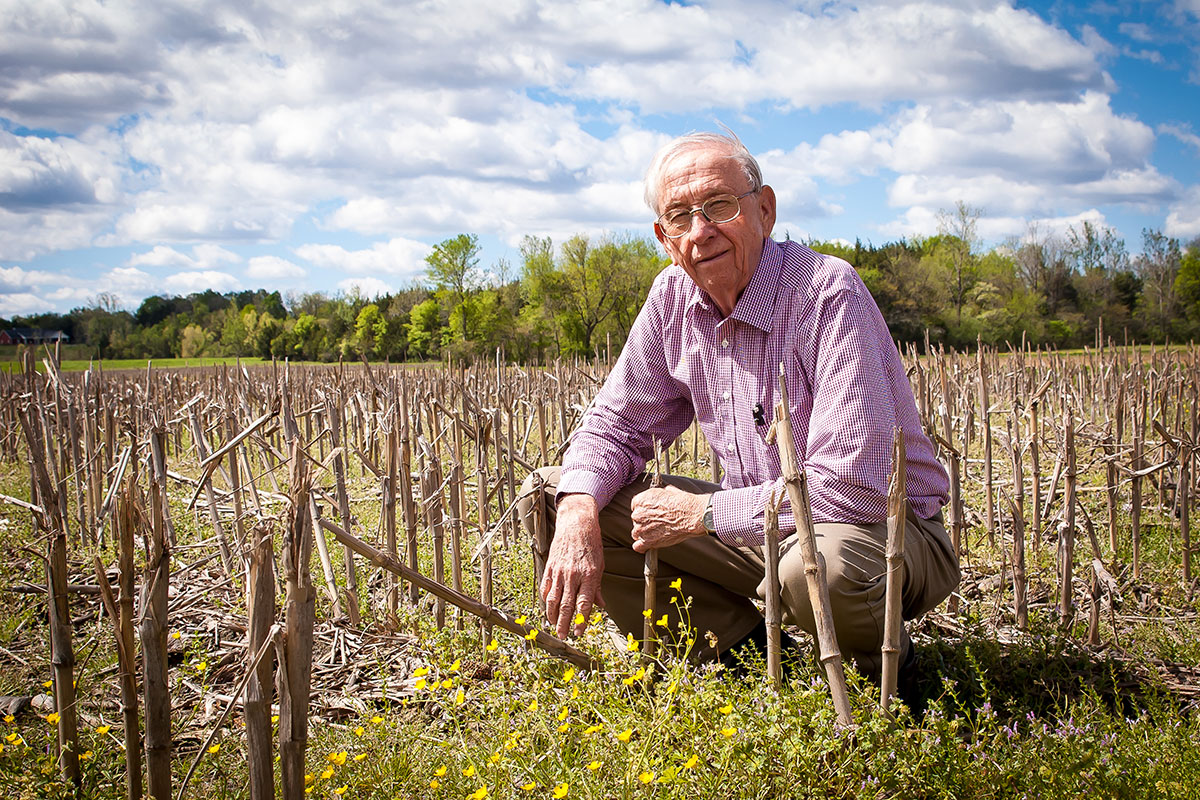Plant Production Systems
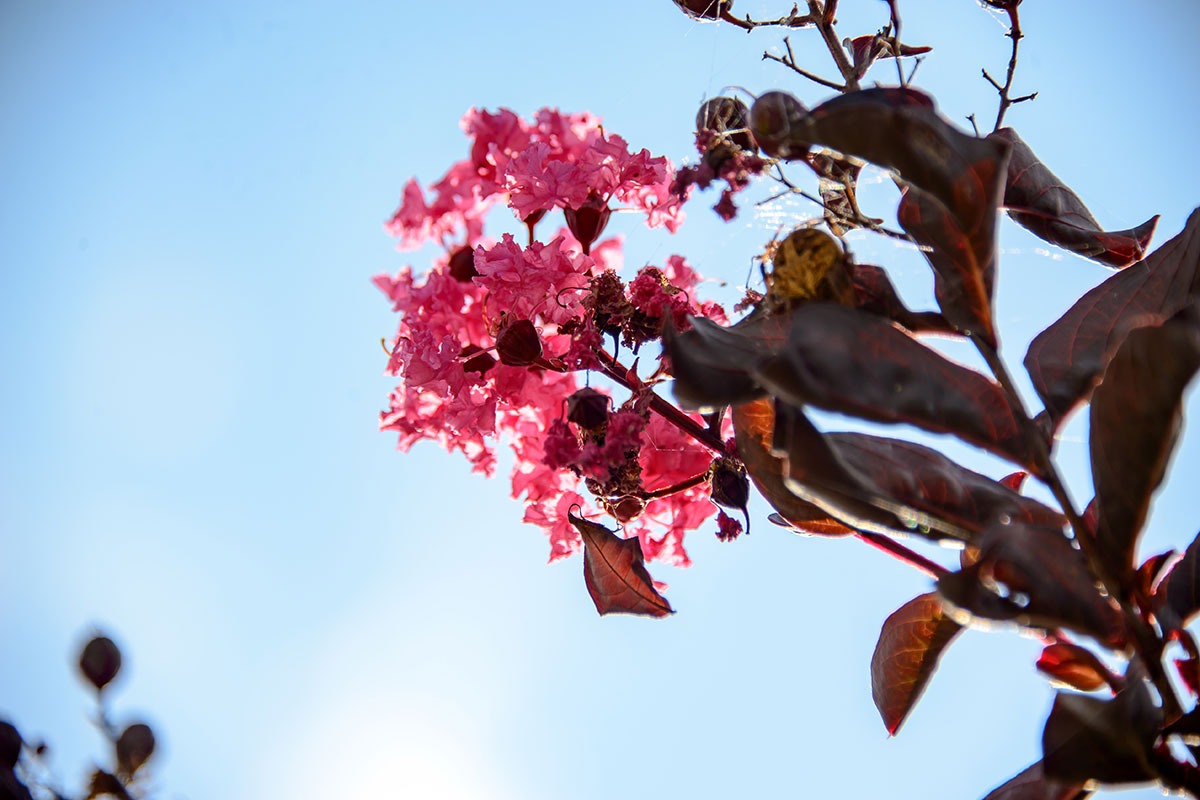
The process to develop a new crape myrtle cultivar takes a good bit of time. In the Mississippi Agricultural and Forestry Experiment Station, it begins at the McNeill Resea...
Read More
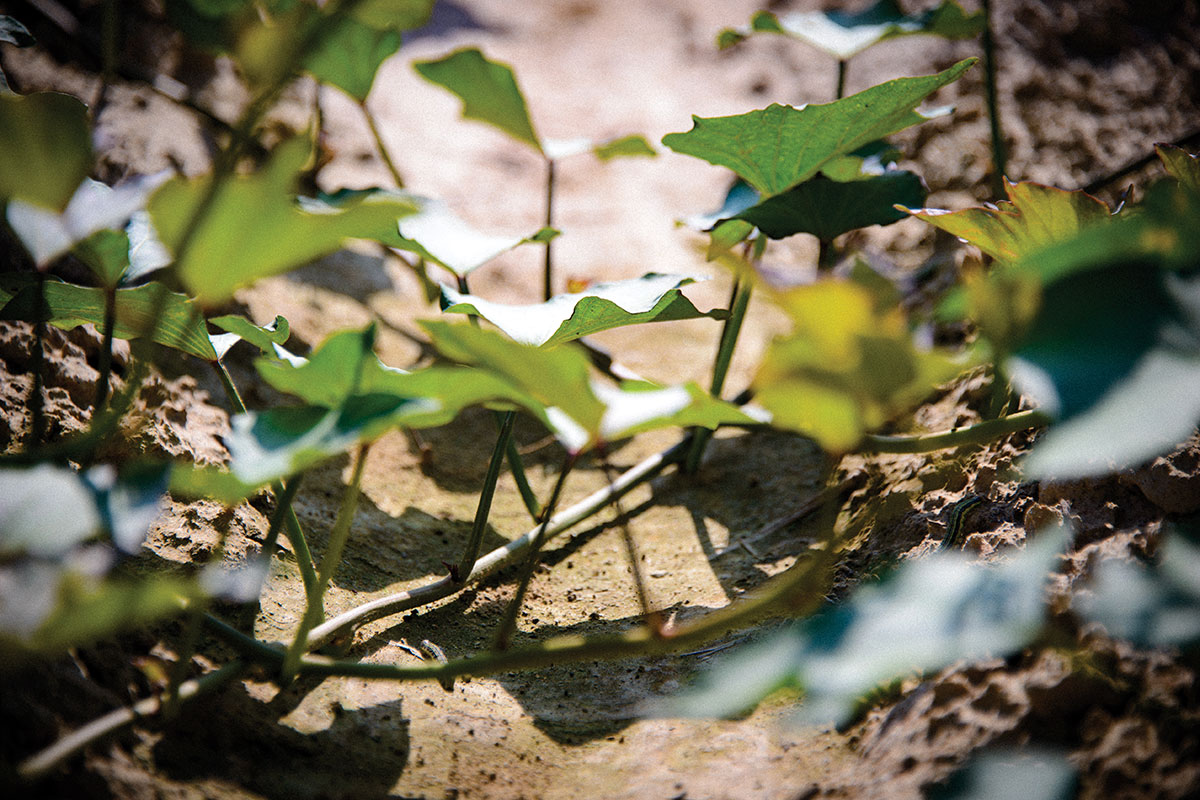
The economic impact of sweet potatoes in the state of Mississippi grew exponentially in 2015. Sweet potatoes stretched across 21,500 acres of Mississippi fields and generat...
Read More
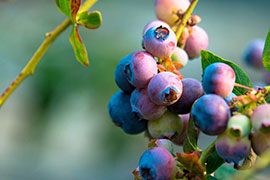
Timing is everything and for blueberry growers, the ability to harvest high-value fruit in the off season could reap financial rewards. Dr. Guihong Bi, plant and soil scien...
Read More
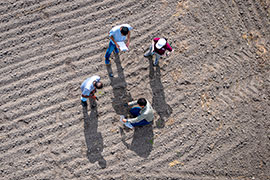
MAFES scientists, led by Dr. Vitor S. Martins, are developing the AI-powered S3DTool to use satellite data for smarter, faster, and more affordable soil sampling that supp...
Read More
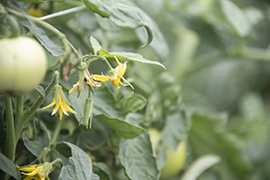
In response to limited research on nitrogen management despite Mississippi’s $113 million horticultural industry, Dr. Ibukun Timothy Ayankojo of MAFES is leading a two-year...
In response to limited research on nitrogen management despite Mississippi’s $113 million horticultural industry, Dr. Ibukun Timothy Ayankojo of MAFES is leading a two-year study in Northeast Mississippi to optimize nitrogen application and irrigation in tomato production, aiming to enhance crop health, productivity, and grower competitiveness through improved nutrient management practices.
https://www.mafes.msstate.edu/discovers/article.php?id=327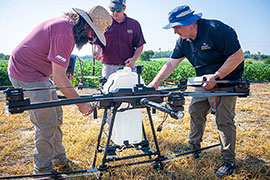
Mississippi State University, through its Agricultural Autonomy Institute and MAFES research, is leading efforts to advance spray drone technology as a precise, efficient c...
Mississippi State University, through its Agricultural Autonomy Institute and MAFES research, is leading efforts to advance spray drone technology as a precise, efficient complement to traditional methods, aiming to improve pest and fertilizer application and position Mississippi as a leader in agricultural innovation.
https://www.mafes.msstate.edu/discovers/article.php?id=332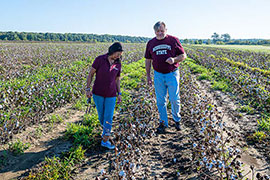
MAFES scientists are leading efforts to detect and understand cotton leafroll dwarf virus (CLRDV), a newly emerging threat to U.S. cotton. Using advanced diagnostics and f...
Read More
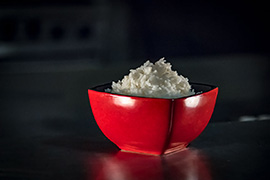
The MAFES rice breeding program, which has been developing high-yielding cultivars for the Midsouth for more than 30 years, helps Mississippi rice producers feed the world....
Read more
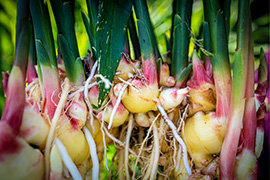
The U.S. is the largest importer and consumer of spices in volume and value according to the USDA. MAFES researchers are helping Mississippi's produce farmers diversify the...
Read More
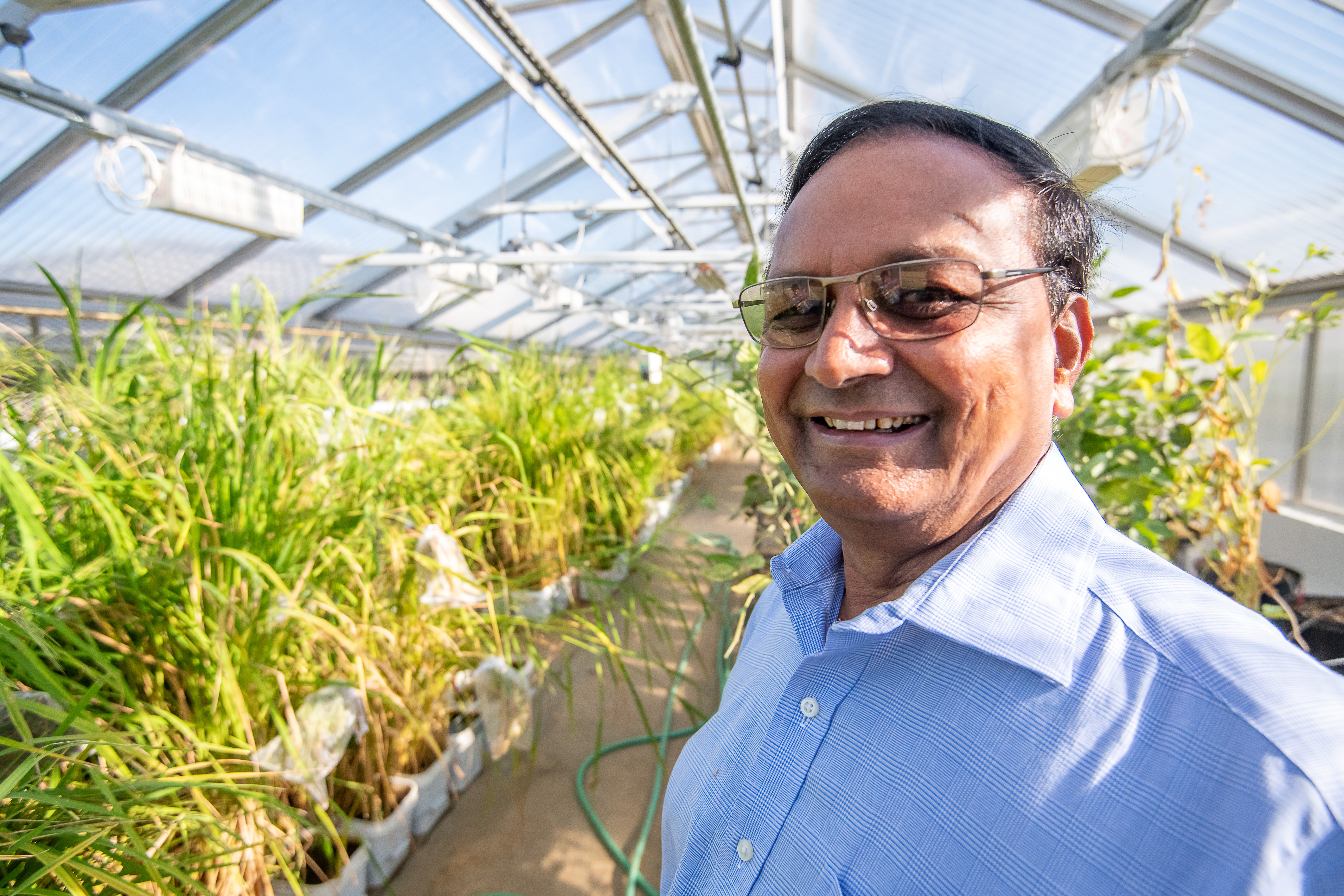
To combat the effects of climate change on rice, corn, and soybeans, MAFES researchers are developing more resilient crops through projects like CRISP Rice and iPACERS, usi...
Read More
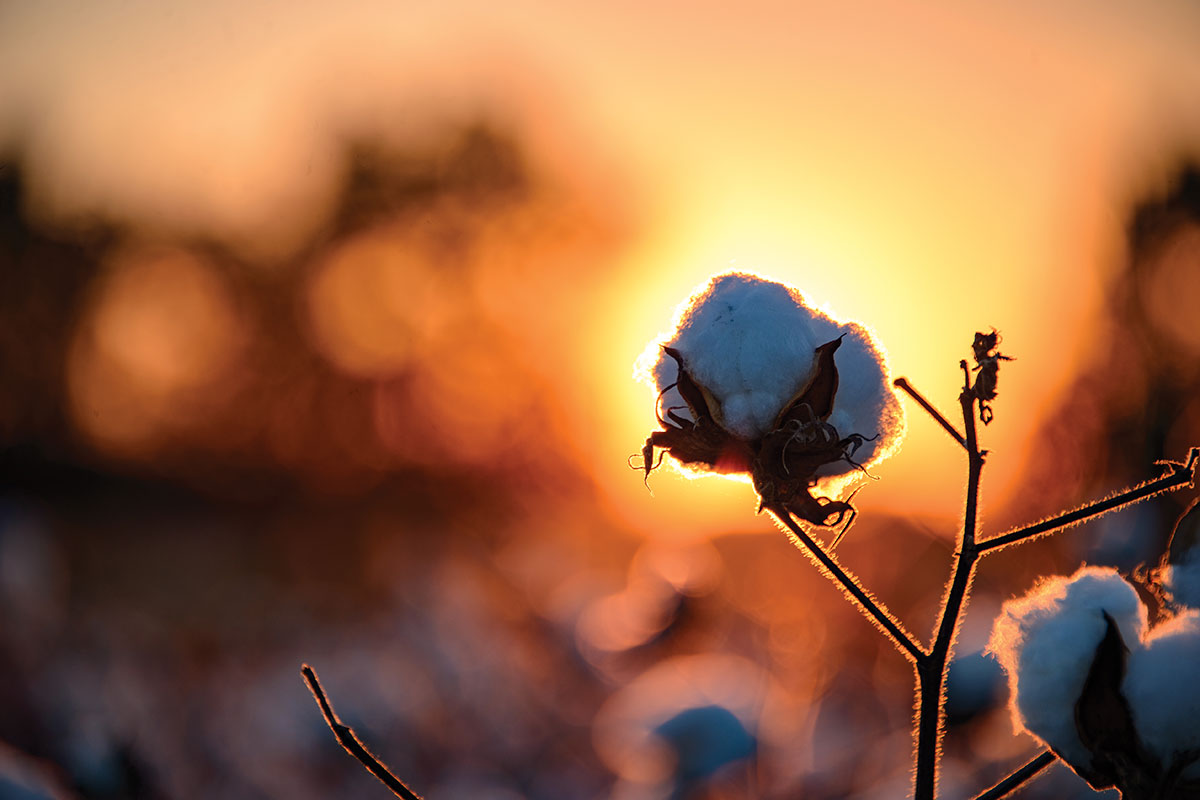
From the field to fabric, from row-crop to runway, cotton plays a pivotal role in dozens of industries. Scientists in the Mississippi Agriculture and Forestry Experiment fr...
Read More

MAFES scientists, Dr. Eric Stafne and Dr. Sam Chang, are working to bring a sweet treat to Mississippi's farms. Fruits such as bunch grapes, muscadines, and blackberries, a...
Read More
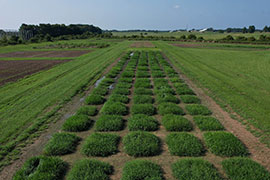
As rising input costs and shrinking cattle herds strain beef producers, Mississippi Agricultural and Forestry Experiment Stations scientists are exploring ways to reduce fe...
Read More
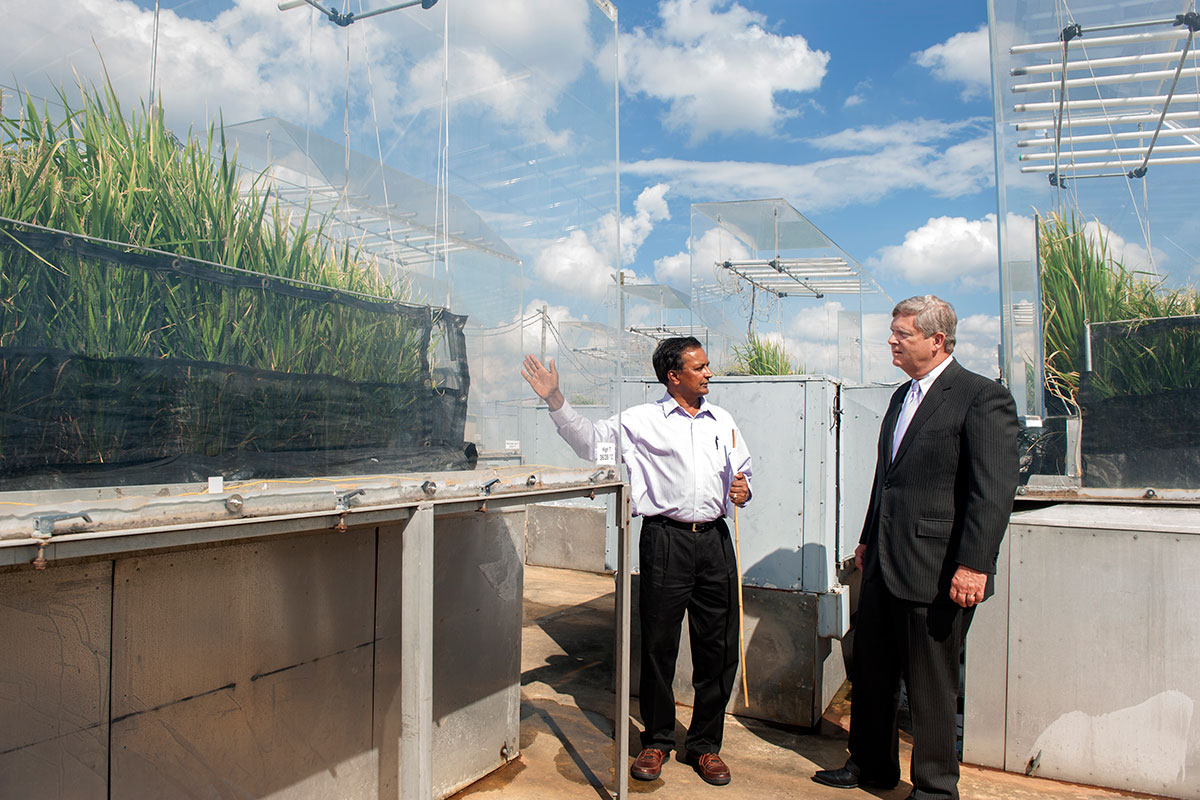
MAFES scientists cultivate crops in a changing climate. The anticipated climate change will increasingly impact crop production and food security in the coming years. Read More
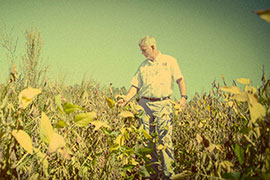
While palmer amaranth may look inconspicuous in its seedling stage, its impact on farmers is nothing short of shocking. In the absence of weed control, it could cause losse...
Read More
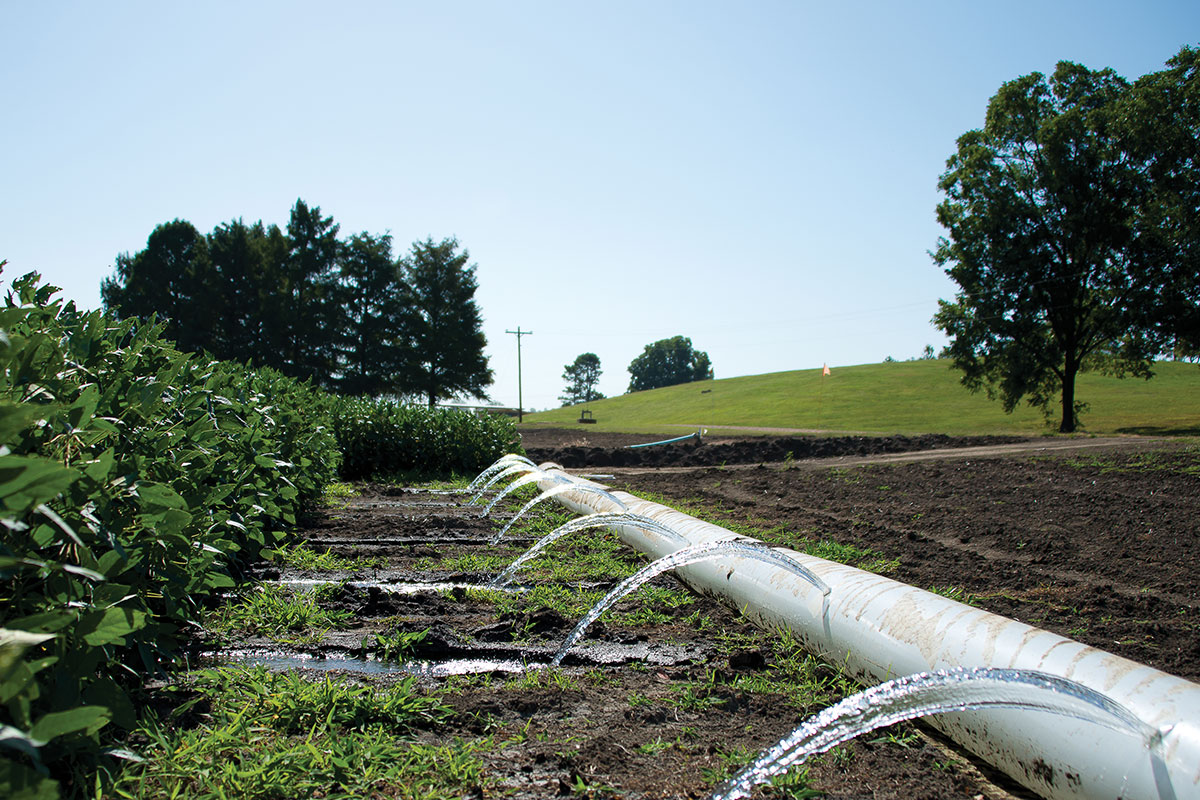
Conservation is critical to both the environment and the people of Mississippi, farmers in particular. MSU scientists are working alongside farmers to develop better ways t...
Read more
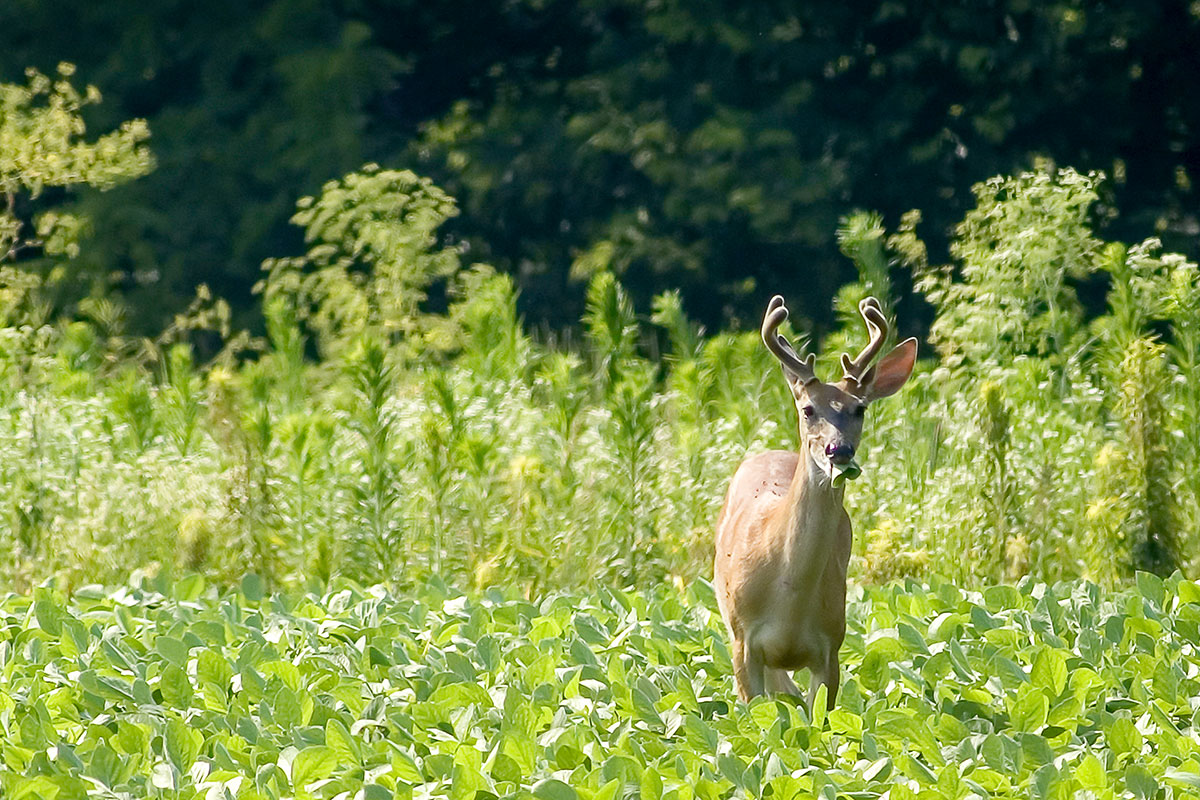
MAFES scientists, Dr. Te-Ming Paul Tseng, assistant professor in the College of Agriculture and Life Sciences' plant and soil sciences department, and Dr. Marcus Lashley, a...
Read more
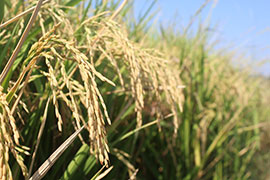
To combat groundwater depletion in Mississippi rice farming, MAFES researchers led by Drew Gholson are using IoT technology and water-saving methods like alternate wetting ...
To combat groundwater depletion in Mississippi rice farming, MAFES researchers led by Drew Gholson are using IoT technology and water-saving methods like alternate wetting and drying to reduce irrigation by up to 40% without lowering yields, while training farmers to adopt these sustainable practices.
https://www.mafes.msstate.edu/discovers/article.php?id=328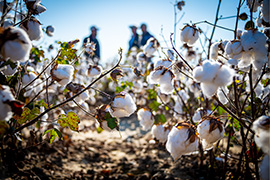
MAFES scientists are harnessing artificial intelligence for real-time integrated weed control. Drs. Wes Lowe, Daniel Chesser, and Brian Pieralisi conducted a study funded b...
Read More
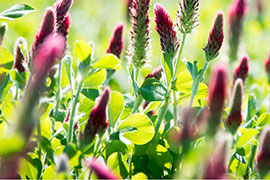
The idea that cover crops help aid in soil health is as old as the Mississippi hills. In fact, before commercial fertilizers were available, legume cover crops were a mains...
Read More
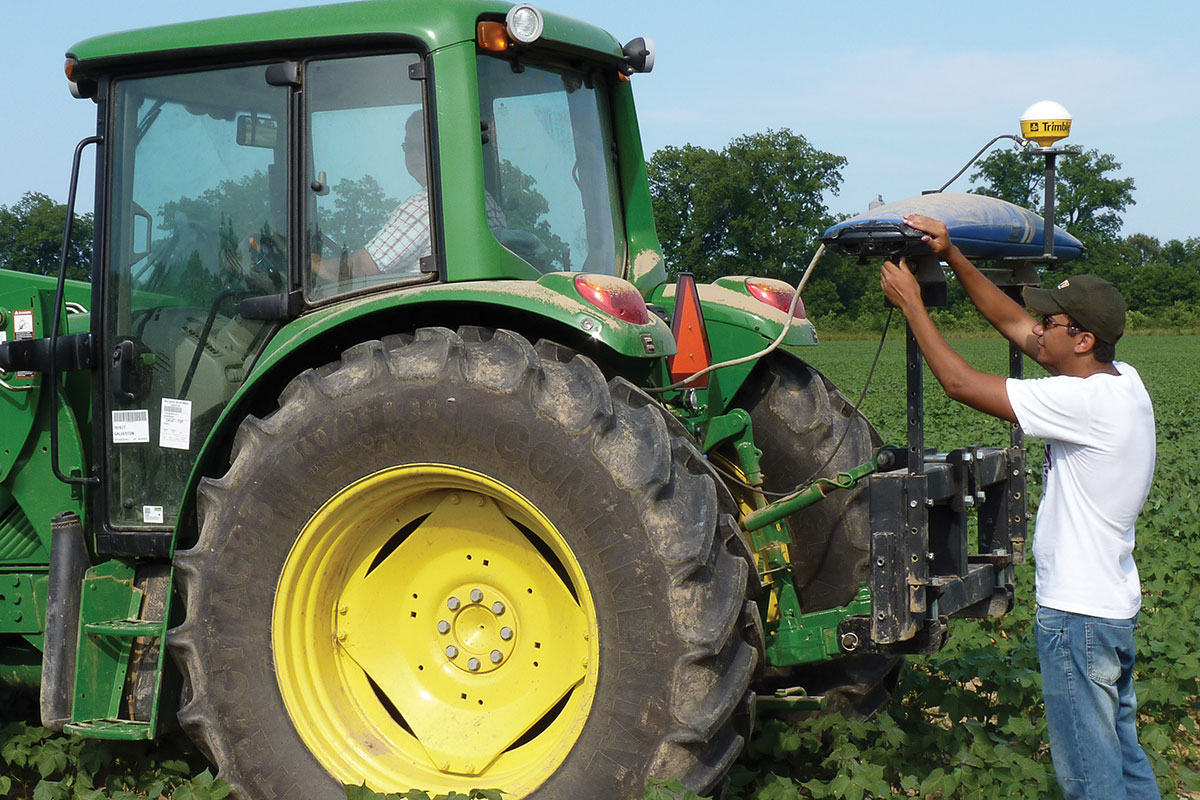
MSU scientists use precision agriculture in soil fertility research. Read more
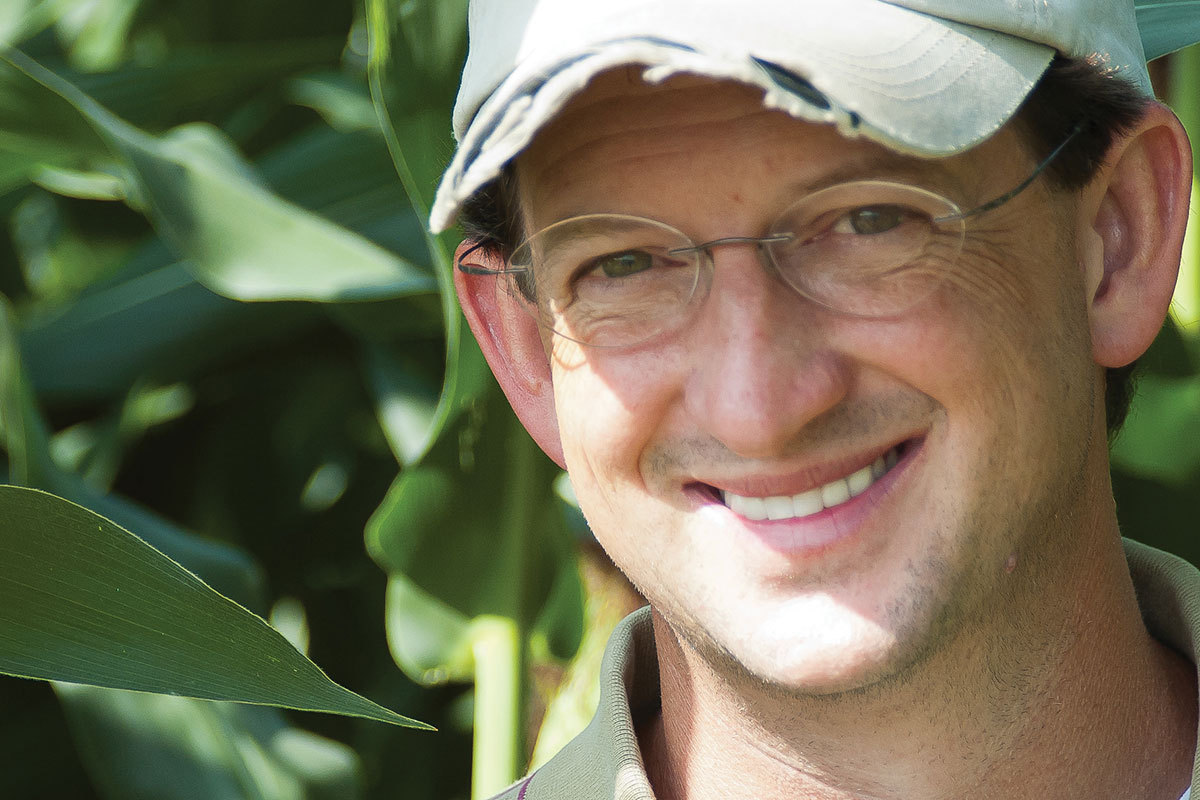
Timing counts for a lot when it comes to planting corn. That's why Mississippi State University scientists are researching the effects of planting date, plant population, a...
Read more
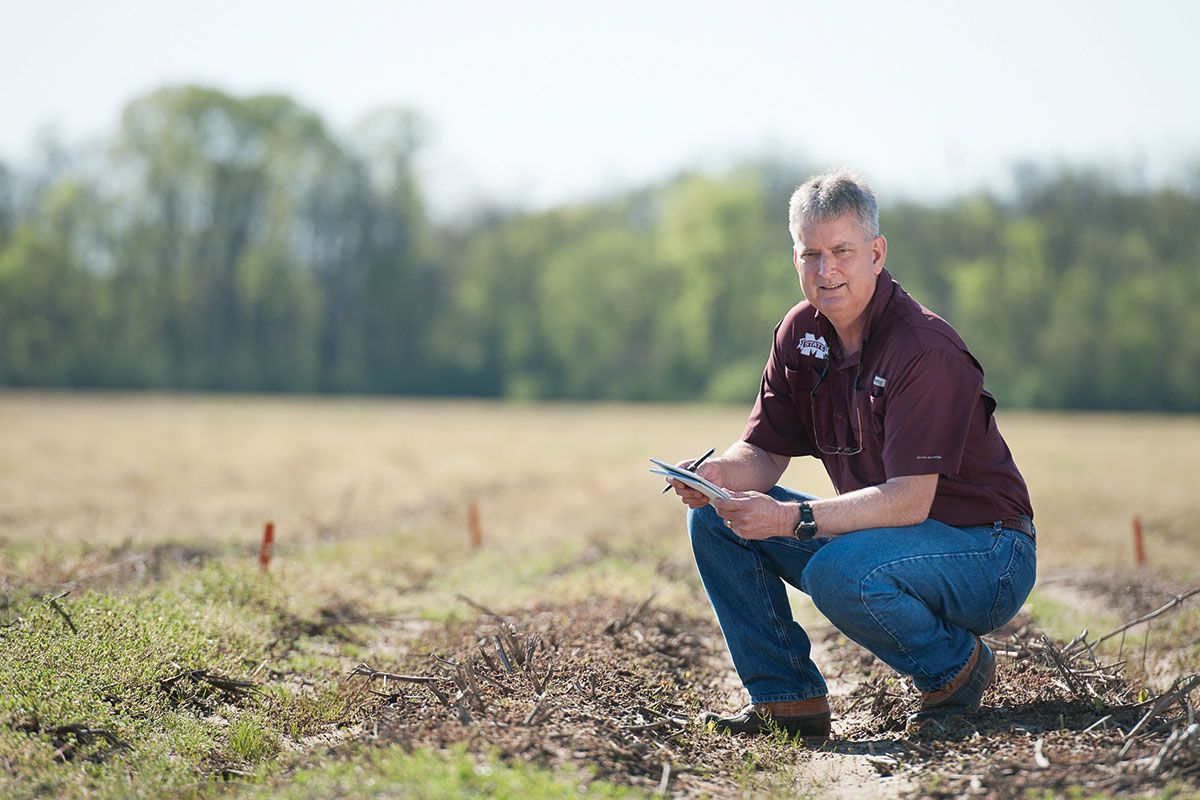
MSU scientists utilize precision agriculture in weed control and herbicide drift research. Read more
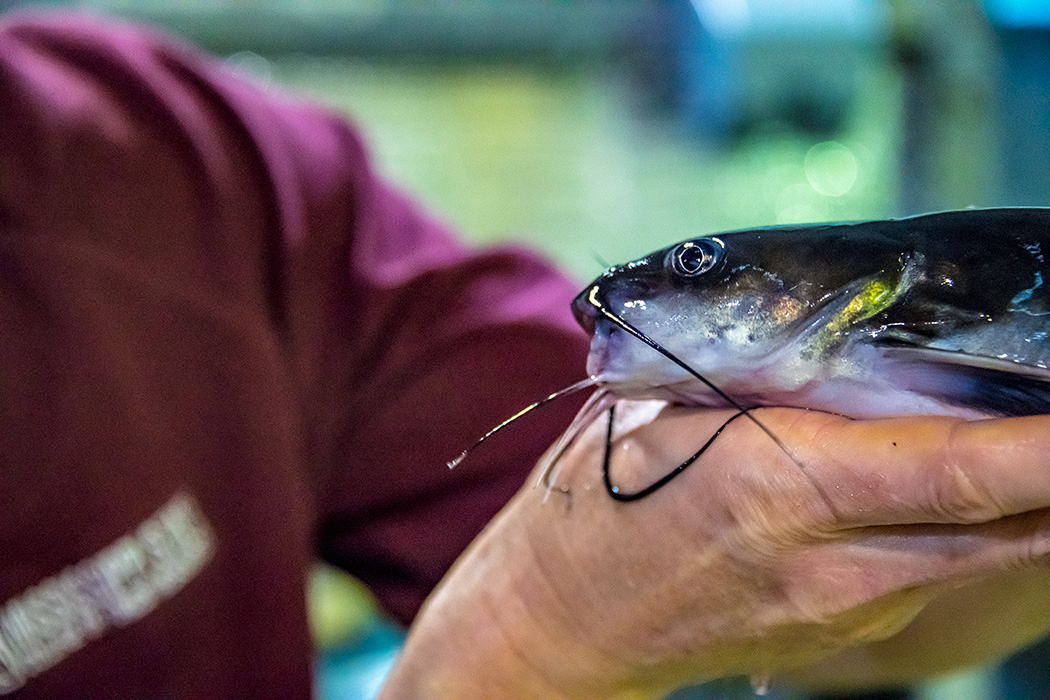
MAFES scientist Dr. Ganesh Karunakaran, associate wildlife, fisheries and aquaculture research professor, is the first to create a comprehensive economic impact model detai...
Read More
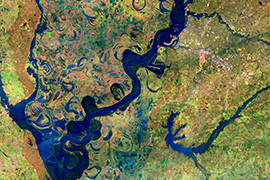
Approximately 17.4% of Mississippi's workforce is employed in agriculture. Two of the biggest agricultural commodities are soybeans and corn. New issues have emerged due to...
Read More
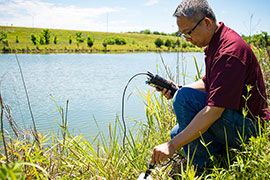
Water is essential. All crops require water and many of the crops in Mississippi depend on irrigation. A little more than half of Mississippi farmland and nearly all of the...
Read More
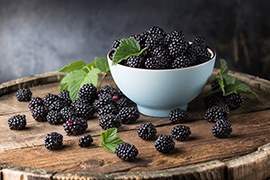
Best management practices for blackberries are being investigated by MAFES scientists. Recognizing white drupelet disorder as an emerging issue in blackberries, Dr. Eric St...
Read More
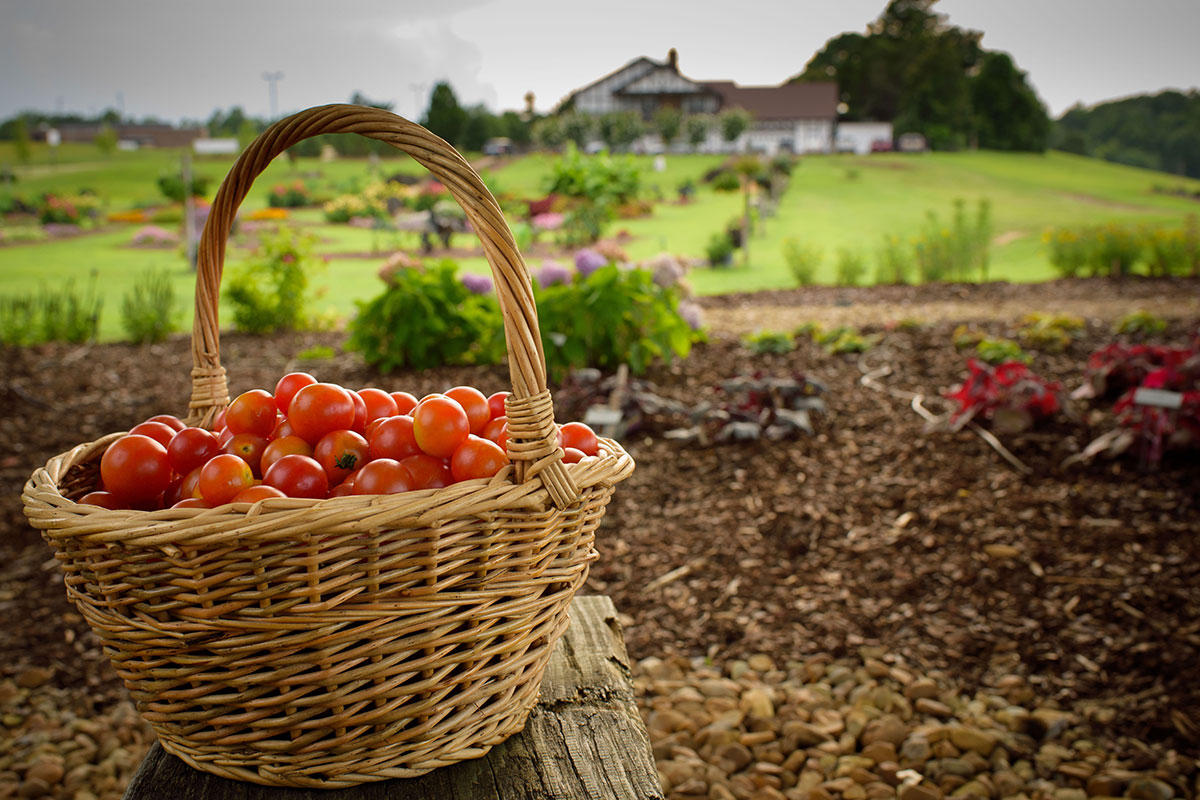
The most common garden vegetable is also a staple in research laboratories at Mississippi State. From herbicide tolerance to gene modification, tomatoes are being studied t...
Read More
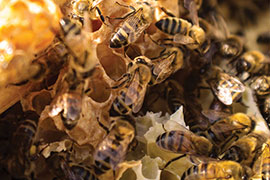
In the midSouth, early-season pest management is a significant challenge to farmers. For insects, relatively mild winters combined with long, productive growing seasons cre...
Read More
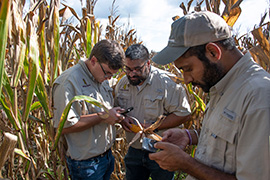
Sulfur is a key macronutrient required to grow a healthy crop of corn. Dr. Jagmandeep Dhillon leads a team of MSU researchers to determine how nitrogen affects sulfur level...
Read More
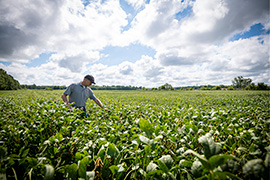
Brought to the United States from China in the eighteenth century, the soybean occupies 75 million acres of U.S. land today. In Mississippi, soybeans are the number one row...
Read More
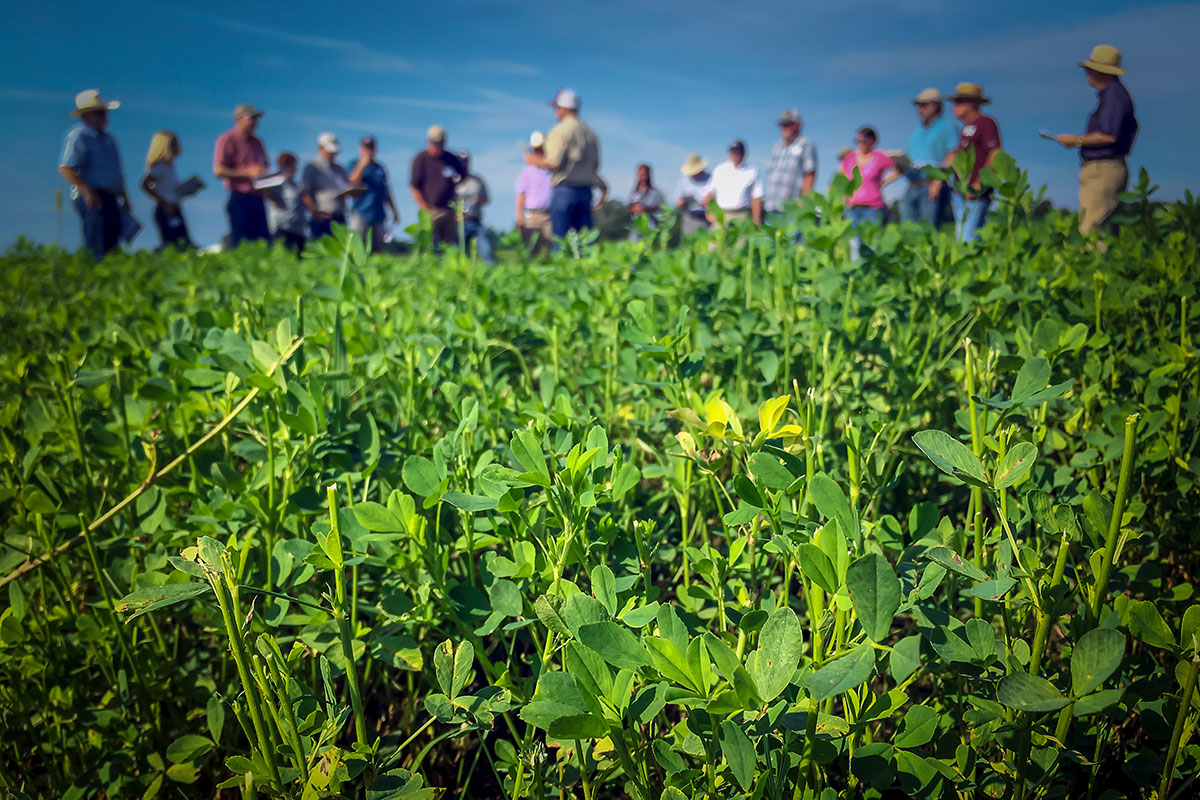
Dr. Rocky Lemus and Dr. Brett Rushing have been working on three projects specifically designed to provide producers better management strategies for alfalfa. They are rese...
Read more
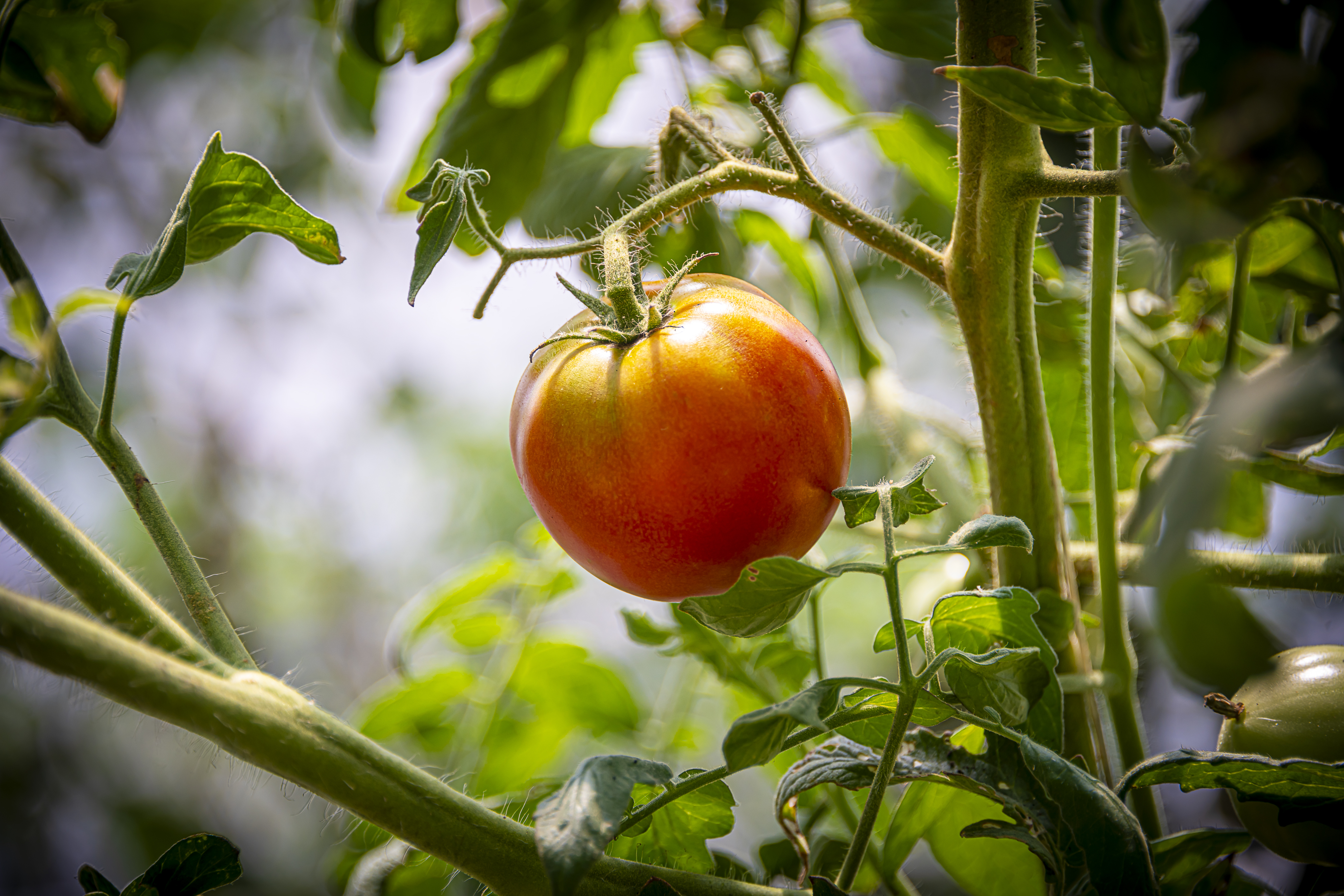
To tackle herbicide-resistant weeds in tomato farming, MAFES researchers are testing sustainable methods like soil steaming, allelopathic cover crops, and biochar, showing ...
To tackle herbicide-resistant weeds in tomato farming, MAFES researchers are testing sustainable methods like soil steaming, allelopathic cover crops, and biochar, showing promising early results in reducing weeds, improving yields, and offering cost-effective solutions for both conventional and organic growers.
https://www.mafes.msstate.edu/discovers/article.php?id=329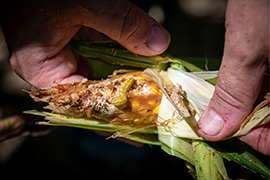
Insect pressure in the field has long been a problem for row crop producers. Additionally, insects can damage stored grain, which can be a huge nuisance for farmers and gra...
Read More
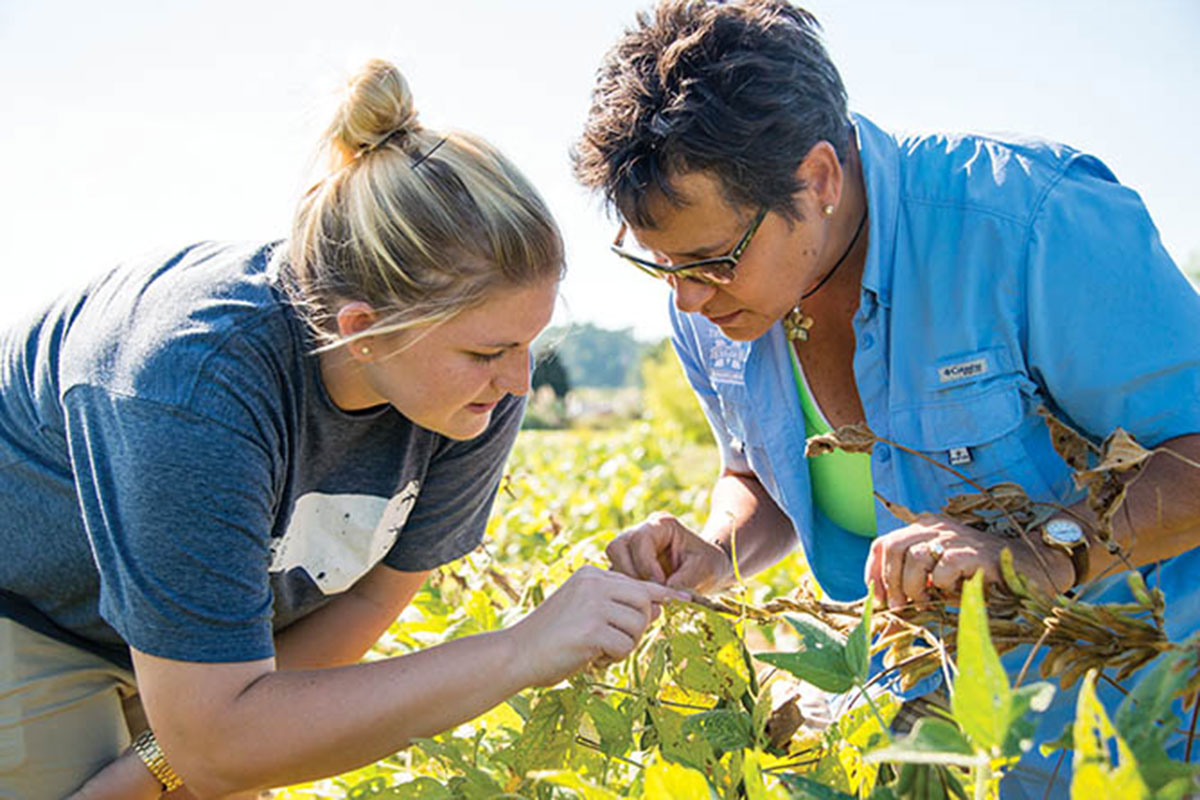
In the world of turf science, mysterious brown spots provide a peek at the multitude of bacteria and fungi that live within our lawns. Dr. Maria Tomaso-Peterson, a MAFES re...
Read More
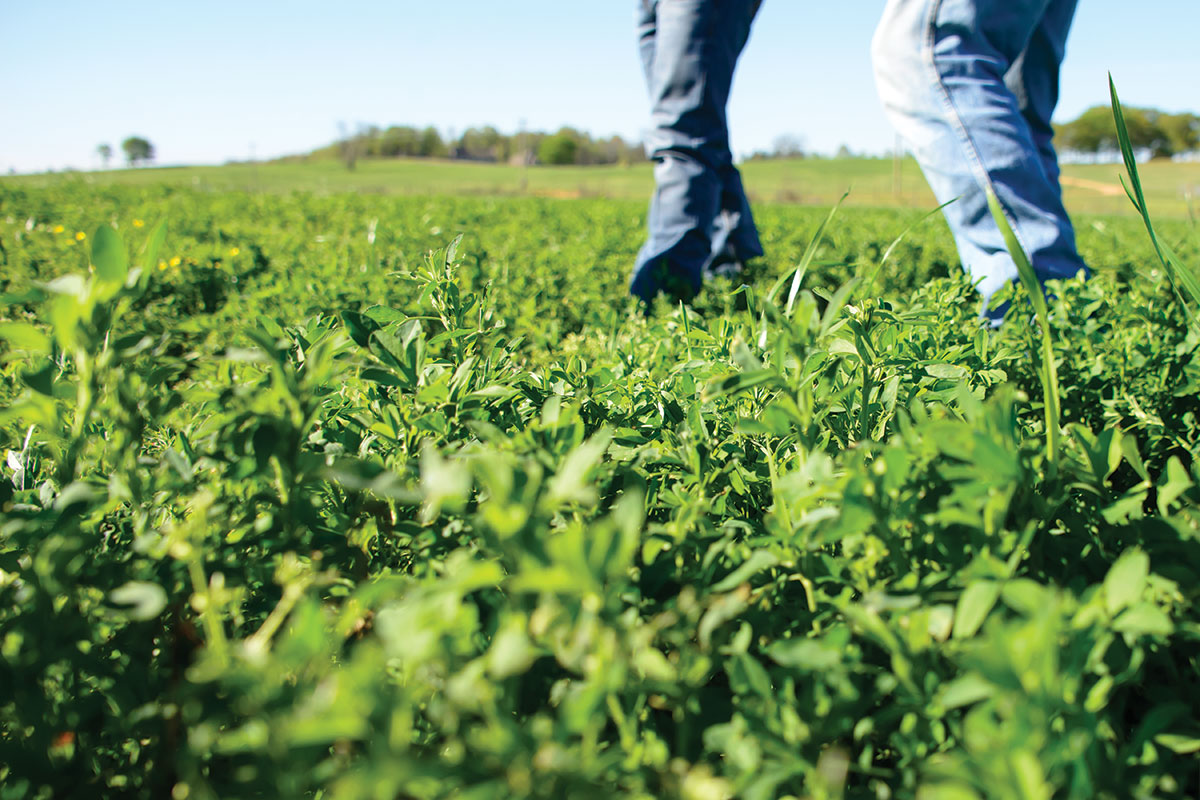
Dr. Rocky Lemus is on a mission: to help Mississippi producers become better forage managers. To accomplish his mission, he and Joshua White, manager of the MAFES Official ...
Read More

